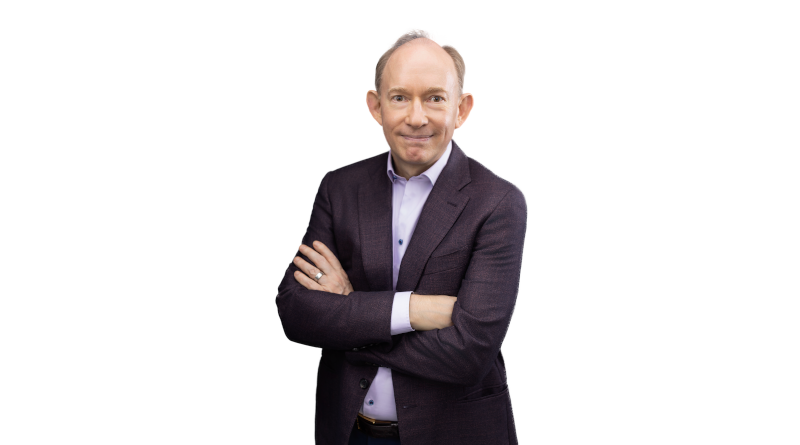A crusade for truth – Targeting plastic bashing
Interview with Chris DeArmitt, President at Phantom Plastics, by Kay Barton
PETplanet: How long have you been interested in plastics and what is your personal story here? And was there a trigger to take action against false reports about plastics with facts?
Chris DeArmitt: I have a PhD in chemistry and polymer science, so my experience as a plastic materials scientist goes back nearly 40 years. My personal interest in plastics and the environment was catalysed by my two daughters being taught misinformation at school. As a professional scientist and problem solver, I know that we cannot make progress without sound information. So, as a hobby I began fact-checking what we are told about plastics online because no-one else is checking it.
PETplanet: Today, you are known in the industry as a corrective and enlightener when it comes to misinformation and misperceptions about plastics and plastic bashing, and you counter them omnipresently and scientifically. Where does your passion for tirelessly educating people based on facts and setting the record straight come from?
Chris DeArmitt: As you say, I appear to have accidentally become the leading expert simply because no-one else have been foolish enough to devote thousands of hours unpaid to reading and sharing the science. To date I have read over 4,000 peer-reviewed studies and found that there is a huge gap between what we are told and what science says. My passion comes not from concern for the environment or plastics but rather it is a crusade for truth.
PETplanet: On e.g. social media like LinkedIn, you get the feeling that you comment on anything and everything that could be accused of being a follower of plastic bashing, polemic and negative publicity about plastics and environmental issues. Do you sometimes feel like Don Quixote when you respond to the same unfounded topics for the umpteenth time?
Chris DeArmitt: Dispelling myths with facts is a never-ending task. Brandolinis Law states that it is vastly more work to dispel nonsense with evidence than it is to make up the nonsense in the first place. The former President of Greenpeace left in disgust and has made it his job to expose so-called environmental groups as charlatans whose business model is to tell lies for money i.e. donations. This has been extremely effective for them, so my one-man unfunded hobby is up against huge NGOs with hundreds of millions of dollars to fund proper marketing campaigns. The upshot is that I am destined to fail but as Elon Musk said, if something is very important, then one must try no matter the probability of failure.
PETplanet: In your opinion, what needs to be improved in order to provide more education and a fact-based discourse globally in terms of understanding, perception and handling of plastics, to address their indispensable value in modern civilisation and who do you think is most likely to be responsible for this?
Chris DeArmitt: At the moment we are making choices and policies proven to massively increase materials use, waste, GHG, fossil fuel use and total impact and all because we have been intentionally misled. We need to stop trusting NGOs who make bold, false claims without real evidence. They tell us that plastics don’t degrade, which is false. They say there will be more plastic than fish in the ocean but that has been debunked at least three times. They say that we eat a credit card of plastic a week when the best scientific study found that is wrong and it would take over 20,000 years to do that. The main problem is not the attack on plastics because it is not affecting plastic sales which grow around 3-4% a year, just like metal, glass, paper, concrete and other common materials. The problem is that the attacks on plastic distract us from actually helping the environment. Plastics make up under 1% of materials we use and are the least harmful choice in over 90% of applications according to life cycle studies. As long as we obsess over the 1% and ignore the >99% of materials that increase harm 90% of the time, we will not only fail to make progress, but we actively increase harm by taxing and banning our greenest choice.
PETplanet: What does it do to you when, for example, multinational brands suddenly engage in supposed green-washing, jump on the bandwagon of plastic bashing, use it to boost their marketing, even change their packaging and thus manipulate people’s opinions?
Chris DeArmitt: Companies and politicians follow the money. We have allowed lies to spread and now customers demand paper over plastic even though 40 life cycle studies say that increases harm. So, we find companies hiding their plastic bottle inside a paper outer layer. We find politicians moving to paper to gain votes. This is the reason that we must not stand by and watch the lies spread. Some of our larger trade associations are funded to take on the fight but been incredibly ineffective to the point that their members express their frustration to me.
PETplanet: Last but not least: How do you personally live the circular plastic economy in your everyday life?
Chris DeArmitt: I am in a fortunate position to be able to make the right choices because I have the facts at hand. The most impact comes from flying less, driving less, eating less meat and reducing food waste. The problem is that people don’t want to make any such sacrifices, so rather than doing what would help, they waive a cotton bag over their head to look virtuous. Real virtue comes from checking the facts and doing what is right, not pretending just to look good. What I do goes against current public opinion and is not popular, but I do it anyway. I hope that others join me.
PETplanet: Thank you, Chris!

